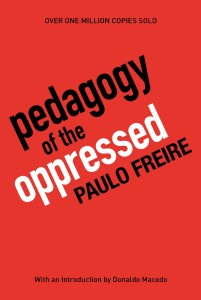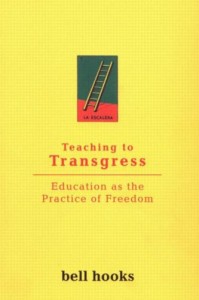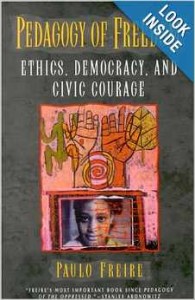Beyond Five Stars–Moving, Relevant, Powerful
March 1, 2008
Matt Mason
I read a lot. Non-fiction. This is one of the most important and inspiring books I have read in some time. It is especially meaningful to me because my oldest of three sons is a pirate who refuses to waste my money on college “credentialing” and has told me point blank there is nothing he cannot learn on his own.
While I have been totally “open” since I published E3i in the Whole Earth Review (Fall 1992) and was called a lunatic by the spy world, and I have given a Gnomedex keytone on “Open Everything,” this book–I am shaking my head trying to find the right words–has been an inspiration to me.
Bottom line: the pyramidal structure, the Weberian bureaucracy model that characterizes all governments and corporations, is DEAD. The circule model, the open network model, is kicking serious butt.
This author has in my view demonstrated world-class scholarship, given us gifted writing, and developed a story line that I can only call DAZZELING. This is an important story we all need to understand.
Here are my flyleaf notes:
+ Pirates are rocking the boat.
+ Information Age has hit puberty.”
+ Citing Mark Ecko, a graffiti artist whose brand is now worth $1 billion: “The pirate has become the producer.”
+ Punk capitalism.”
+ Punk Plus equals creative destruction at hurricane force.
+ Purpose is everything.
+ Citing Shane Smith: In America there is no anti-status quo media–it's all the same four big companies…there is no voice.
+ Punk and green are converging on substance and style.
+ Citing Richard Florida, “Rise of the creative class”
+ 3d printing is here now, 3d product download is on the horizon (I envision FedEx Kinko's as a “one of” production facility, but the dumb ass at FedEx CEO blew me off when I proposed that he print books to lower their carbon footprint).
+ USA was founded on the basis of piracy of European technologies.
+ Three core punk ideas are 1) do it yourself; 2) resist authority; 3) combine altruism with self-interest.
+ Canal Street moves faster than Wall Street.”
+ Pirate radio as musical petri dishes creating new spaces.
+ “Today a new generation is demanding more choice.”
+ Net neutrality matters (FYI, Google has a programmable search engine that will let you see only what others pay to let you see. Google is now totally EVIL.
+ Lawsuits are a sign of corporate wekaness.
+ Monsanto is totally evil, and these morons have filed patents claiming they own all the pigs on the planet. Hard to believe. Time to close them down.
+ INSIGHT HALFWAY THROUGH THE BOOK: Punk and integral consciousness, pirates and creative commons, are converging.
+ 3 pirate hyabits: 1) look outside the market; 2) create a vehicle; 3) harness your audience.
+ Remix is HUGE.
+ Graffiti is explained brilliantly by this author.
+ Open Source is going physical, e.g. open source beer.
+ File sharing boosts sales and extends range of for-sale music.
+ Free education online (and my own idea, one cell call at a time) is the ultimate positive sharing experience.
+ 1.5 billion youth around the world waiting to explode in creativity or destruction–I ask myself, what are we doing to help them go creative?
+ Four pillar s of community: 1) Altruism, 2) Reputation; 3) Experience; 4) Pay them (revenue sharing with customers).
+ Authenticity is huge.
+ Weaker boundaries = stronger foundations.”
+ Hip hop as “sustainable sell-out,” a “powerful form of collective action.”
+UN Secretary Gen3eral Kofi Annan recognized hip hop as an international language.
+ Flash mobs
+ Create a virus and feed it: 1) Audeince makes the rules, 2) Avoid limelight, speak only to the audience; 3) Feed the virus; 4) Let it die.
Conclusion: our youth have a new world view, empowered by global information technology, and they are the pinnacle of incredibly efficient networks.
I am just totally blown away by this book. The author has written a manifesto of enormous import.
See also:
Smart Mobs: The Next Social Revolution
Global Brain: The Evolution of Mass Mind from the Big Bang to the 21st Century
The Tao of Democracy: Using Co-Intelligence to Create a World That Works for All
The World Cafe: Shaping Our Futures Through Conversations That Matter
Society's Breakthrough!: Releasing Essential Wisdom and Virtue in All the People
One from Many: VISA and the Rise of Chaordic Organization
Here Comes Everybody: The Power of Organizing Without Organizations
Collective Intelligence: Creating a Prosperous World at Peace
The Big Switch: Rewiring the World, from Edison to Google
Access Denied: The Practice and Policy of Global Internet Filtering (Information Revolution and Global Politics)
I have a number of books on Amazon, should you wish to know more, I would be glad to have you examine them.






